Gavi, WHO, and UNICEF strengthen commitment to cervical cancer prevention in Mozambique, protecting ...
Covid-19: WHO representative praises Mozambique’s response but points out difficulties
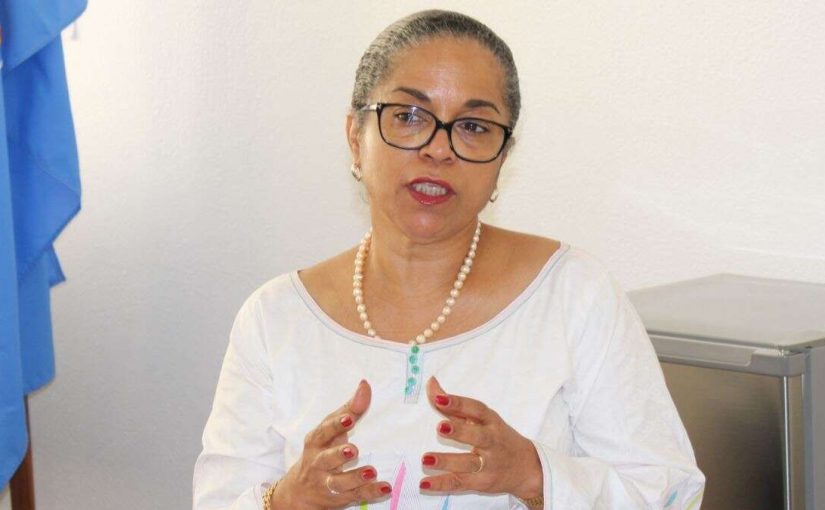
File photo: Lusa
WHO representative Djamila Cabral believes that government measures are “having some effect”, but underlines that much remains to be done. Resources are not fully available, “despite the goodwill of the partners”, she says.
With 41 cases of Covid-19 confirmed as of Wednesday (April 22), authorities in Mozambique continue to work to halt the spread of the new coronavirus. The main goal remains: to avoid overburdening the country’s already fragile health system, the representative of the World Health Organisation (WHO) in Mozambique says.
In an interview with DW Africa, Djamila Cabral praised the government’s work, but underlines the lack of resources and the permanent need to raise awareness and to support the population at a time when prevention measures are making life difficult for many Mozambicans. Cabral says she hopes the epidemic is contained, and that the number of tests is expected to increase in the coming weeks.
DW Africa: How do you assess Mozambique’s response to the new coronavirus pandemic so far?
Djamila Cabral (DC): As I always say, I think we are on the right track. The preparation started in January, early February, and there was a lot of work from the point of view of the health response, directives, protocols, data collection instruments, training. There was a lot of basic work to reinforce the capacity of the system so that it can respond when requested. Evaluations, simulations, isolation centres were created. There is still much to do to bring this level of preparedness to all districts, but progress is being made, now also at provincial level.
Then there is the whole public awareness campaign. Nowadays, I don’t think there is one Mozambican who doesn’t know the need to wash hands often. Everyone knows that Covid-19 exists, everyone is afraid of Covid-19, everyone has a relatively good idea of what needs to be done to prevent it. All this part of the communication continues, because there are new things to say and it is continuous work, because it requires a change in behaviour, it is not achieved in one day or one week.
We also have all the measures that the Government has been taking, in a gradual, progressive manner – measures that seem to us to be correct, coherent and, in a way, courageous too, because they are not easy. There are many people who need, for example, to go out every day and these measures can create limitations on the ability that a large part of the population has to seek their livelihood every day. But they are necessary measures. They have also been adapted to needs, with the creation of shift labour in companies that cannot stop. Closing schools, limiting the use of transport, the risk is removed here. Markets that must have more restricted hours, churches and centres of worship that must be closed. All of this was done little by little and I think that, if we add all these actions to prepare the health system, inform the population and measures that the Government has taken to reduce risks, we may believe that they have had some effect in the course of this epidemic in Mozambique.
DW Africa: You said that there is still a lot of work to do. What are the WHO’s priorities in Mozambique at the moment?
DC: At this time, all WHO technical personnel are fully devoted to this action and to supporting the Ministry of Health in preparing the health system to respond when necessary. We also work with the Ministry and partners to finalise the operational preparation and response plan for Covid-19, the equipment purchase plan – which is a fundamental issue – medical and hospital equipment, but also protection equipment, all necessary materials that should be mostly imported and we know the limitations that exist in relation to this.
For us, the priority is to help the Government to create the conditions to, first, identify all patients, for example border screening, contact tracking, monitoring. Second, everything concerning isolation systems and hospital quarantine and treatment, all that part that has to do with the health system and, finally, raising awareness, creating a social awareness of the need for everyone to do what they must do, like washing hands frequently, the cough etiquette, social distancing, not touching the face and eyes, in short, all these aspects.
DW Africa: Still within the scope of materials, last week the WHO said it was concerned about the issue of testing on the African continent, because a reduced number of tests could mean that the actual numbers of cases would be higher. Is this also a concern in Mozambique?
DC: This is perhaps a concern of others because, deep down, we understand that the number of tests done is not as large as elsewhere and, at the beginning, there was really a problem of availability of tests and sample collection material, but I think that was at the very beginning. Then, the Government was following a strategy that was defined by WHO and adapted to the local reality. There are criteria behind the tests, we cannot go out and start testing everyone [showing up] in front of us. These criteria are likely to change as the epidemic advances and new outbreaks emerge. Today, the country has no major problems in terms of test availability. There is still a limitation: there is only one laboratory that conducts tests, but a plan to create new laboratories has already started to be implemented, because Mozambique is a very large country and having only one place where the test is done creates many constraints. The Government is aware [of this]: it has already made a plan and is implementing it, there are already partners to finance this. There is a concern to increase the number of tests done and they will probably increase over the next few weeks.
DW Africa: What other difficulties do you encounter?
DC: For now, the necessary resources are not yet available. Despite the willingness on the part of the partners to make more funds available, not everything is available yet. But there is another issue that is global: the availability of what we need. Protective equipment, ventilators and other medical-surgical devices, consumable materials such as gloves – there is a big availability problem that makes us unable to buy even when we have the financial resources. A worldwide mechanism has been established to support acquisition, but it has been a constraint. And in Mozambique, there are still all the constraints linked to a fragile health system. We don’t have enough health facilities, we don’t have enough staff, staff need to be trained and training takes a long time. We are trying to close the gaps. We also have the issue of basic health services, which need to continue to function. Mozambique has a high prevalence of HIV/AIDS, malaria, tuberculosis. With these few resources that we have, the country must be able to organise itself to respond to Covid-19 but also to continue to address the basic health issues of the population.
DW Africa: At the beginning of the interview, you mentioned a generalised perception of what Covid-19 is, the huge task of raising awareness. Outside urban centres, how is this being done?
DC: It’s a common constraint. The actions in the health system were initially carried out in Maputo, where the big hospitals are, where we have a lot of urban population. All awareness-raising work and community approaches have also been done, but it is true that it is more difficult to reach the countryside. There is a lot of work done with non-governmental organisations, civil society bodies, associations and others who work in the communities. In Mozambique, around 60% of the population lives in rural areas, but the population density is low, which can be an advantage in this situation, but it also creates some constraint in terms of community activities. I believe that, with the media we have today, the urban area is privileged in terms of access to information, but community radio stations are also taking action. I have no way of assessing the degree of penetration, but I think that everything that has been done has reached rural areas.
DW Africa: In Mozambique, the authorities recommended the use of masks, for example, in public transport. How does WHO view this recommendation?
DC: It is an intervention that is currently being used in several countries. The Government of Mozambique made the decision to add masks to the other measures – and I say add, because the mask alone will not solve the problem. The mask supports all other measures such as hand washing, cough etiquette and social distancing.
We think that, as a public health measure, masks can have a positive effect if they are used in conjunction with other measures. The challenge here is on two levels: for now, the production of sufficient and acceptable quality masks to be used worldwide. Bearing in mind that these masks do not provide a very significant protection in terms of barring the virus, if they are used by everyone, they may eventually have some benefit. We must produce masks of good quality, but also inform the population that it is not a miracle cure, it is an additive. It is very important to be able to do all the necessary communication, because we have the feeling that people, as soon as they put on the mask, feel safe and no longer do the rest. That is the danger we have to avoid, and I think the authorities are aware of that. All of this refers to non-medical masks. This also has the great benefit of leaving medical masks for health facilities. The idea of creating masks that can be reused, washable, made locally, cheaper, so that there can be a mass use and protect the population, but also preserve surgical masks for health personnel, who will be at great risk and who we cannot lose because they have become contaminated by doing their job.
DW Africa: With all this, do you think it will be possible to slow down the evolution of the pandemic in Mozambique?
DC: I have to have that hope. We may be able to contain the epidemic as far as possible. The idea is to avoid having thousands of cases requesting health care at the same time. The main goal is to avoid reaching this situation in which we will have too many people in need of the health system, and it will not be able to respond to everyone.



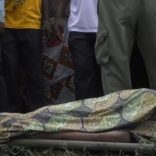
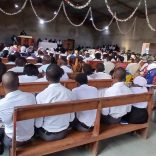
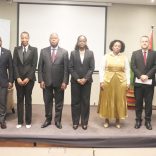

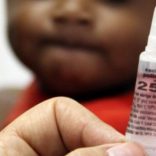




Leave a Reply
Be the First to Comment!
You must be logged in to post a comment.
You must be logged in to post a comment.